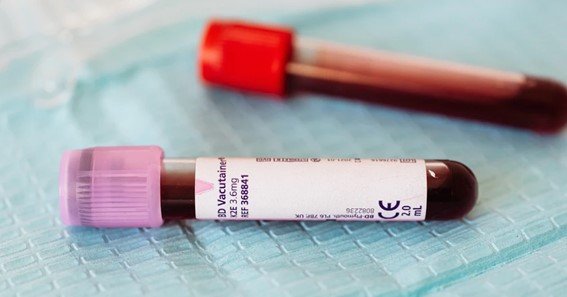When you get a routine blood test, you might come across the term PCV. Many people wonder, what is PCV in blood test, and how does it relate to overall health? PCV, also known as Packed Cell Volume, is a vital part of understanding your blood’s composition and how well your body is functioning. In this blog, we will explore what PCV is, why it’s important, and what you should know about it.
What Is PCV In Blood Test?
PCV, or Packed Cell Volume, is a measurement used to determine the proportion of red blood cells in your blood. Red blood cells are responsible for carrying oxygen throughout the body, making them crucial for overall health. When you ask, “what is PCV in blood test,” you’re essentially asking how much of your blood is made up of red blood cells.
A high or low PCV level can indicate various health conditions, and that’s why it’s often checked during routine blood tests. Knowing your PCV level can help doctors understand more about your body’s ability to transport oxygen and maintain healthy blood function.
Why Is PCV Important?
PCV is a significant measure in understanding your blood health. Red blood cells play a vital role in carrying oxygen from the lungs to all parts of the body. Without a healthy number of red blood cells, your body can struggle to get enough oxygen, leading to fatigue, weakness, and other health issues.
When doctors look at what is PCV in blood test, they are checking if the red blood cell count is within a normal range. A normal PCV level for men is usually between 40-54%, and for women, it is between 36-48%. These numbers can vary slightly depending on the lab, but they give a general idea of what’s considered healthy.
What Do High Or Low PCV Levels Mean?

If your PCV level is higher than normal, it may indicate that your blood is thicker than usual due to an increased number of red blood cells. This condition is known as polycythemia and can cause problems like blood clots or other circulatory issues. High PCV levels can sometimes be a sign of dehydration, lung disease, or other medical conditions.
On the other hand, low PCV levels may point to anemia, which occurs when your body doesn’t have enough red blood cells to function properly. Symptoms of anemia include fatigue, pale skin, shortness of breath, and dizziness. Understanding what is PCV in blood test can help doctors diagnose these conditions and provide the right treatment.
How Is PCV Measured?
PCV is measured as part of a Complete Blood Count (CBC) test, which is one of the most common blood tests performed during routine checkups. During a CBC test, a small sample of your blood is taken and sent to a lab for analysis. The lab then separates the blood into its components—red blood cells, white blood cells, and plasma—to determine the PCV, or Packed Cell Volume.
The results of the PCV test can help your doctor determine if your red blood cell count is too high, too low, or just right. Understanding what is PCV in blood test is essential for diagnosing conditions that affect the blood’s ability to carry oxygen.
What Can Affect PCV Levels?

Several factors can influence PCV levels. For instance, dehydration can lead to a temporary increase in PCV because there is less plasma in the blood, making the red blood cell count appear higher. On the other hand, certain medications, blood loss, or nutritional deficiencies can lower PCV levels.
In some cases, underlying conditions like heart disease, lung disease, or kidney problems can affect your PCV. That’s why it’s important to get regular checkups and know what is PCV in blood test to ensure your body is functioning properly.
Conclusion
Understanding what is PCV in blood test helps you take control of your health by knowing how your red blood cell levels impact your body. Whether it’s high or low, your PCV level gives important information about your overall blood health and can help detect conditions like anemia or polycythemia. The next time you get a blood test, you’ll have a better understanding of what PCV is and why it’s important.
FAQ
What Is PCV In A Blood Test?
PCV, or Packed Cell Volume, is a measurement that shows the proportion of red blood cells in your blood.
What Does A High PCV Level Mean?
A high PCV level could indicate polycythemia, dehydration, or lung disease, and may cause issues like blood clots if left untreated.
What Does A Low PCV Level Mean?
A low PCV level may indicate anemia, a condition where your body does not have enough red blood cells to carry oxygen effectively.
How Is PCV Measured In A Blood Test?
PCV is measured as part of a Complete Blood Count (CBC) test, where a small sample of blood is taken and analyzed in a lab.
Can Diet And Lifestyle Affect PCV Levels?
Yes, factors like hydration, nutrition, and underlying health conditions can influence your PCV levels, making it important to maintain a balanced lifestyle.










